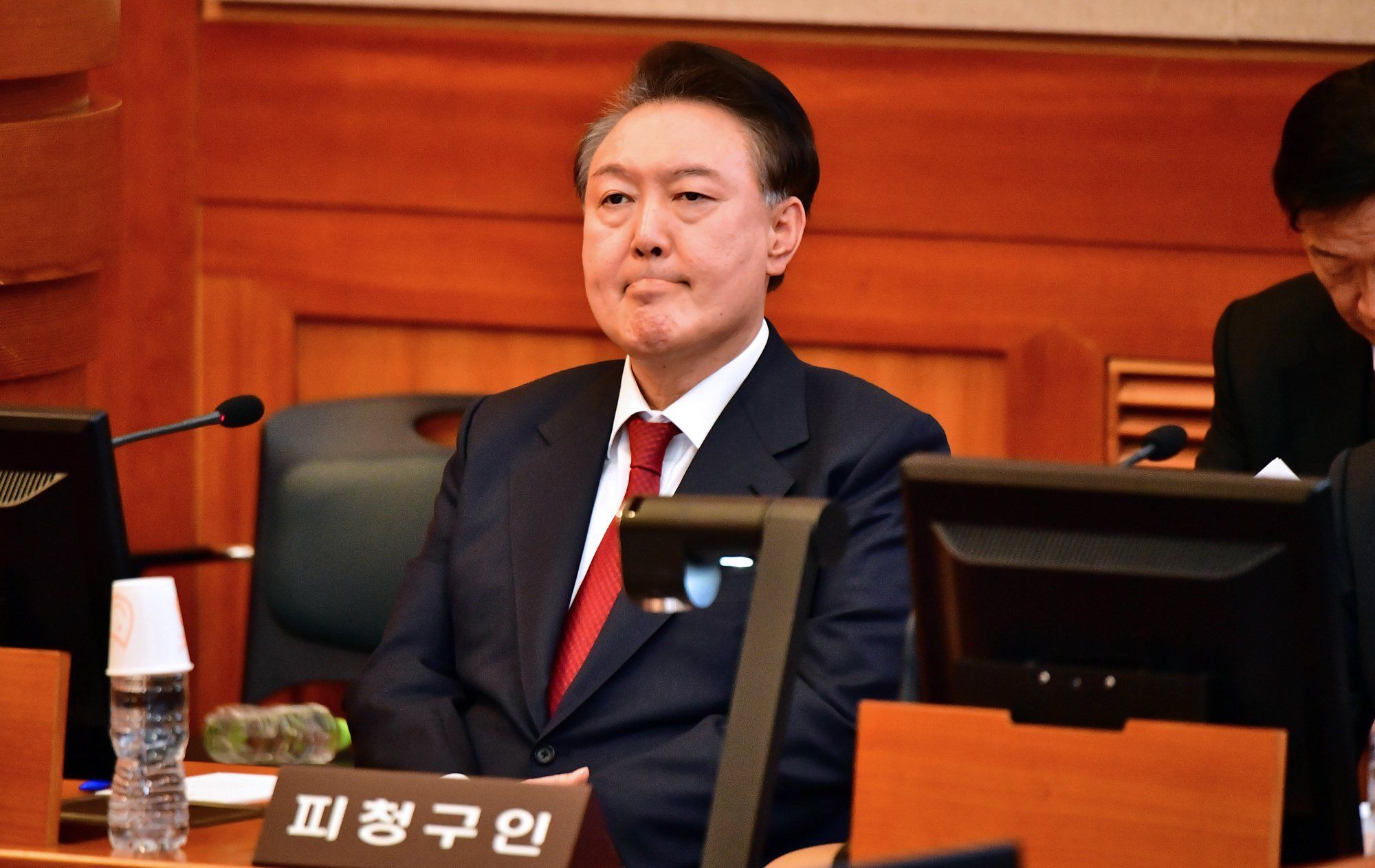Impeached South Korean President Yoon Suk-yeol appeared before two courts on Thursday. His first stop at the Seoul Central District Court made him the first sitting president — he’s not yet been formally removed from office — to face criminal prosecution. He is accused of insurrection for imposing martial law, albeit briefly, on Dec. 3. Korean presidents enjoy immunity from prosecution on most charges — but not insurrection or treason.
Yoon, whose conservative party suffered a stinging defeat in last April’s parliamentary elections, claimed at the time that the progressive-dominated National Assembly was infiltrated by North Korea. South Koreans took to the streets to protest the declaration of martial law. But South Korean politics is heavily polarized and, before long, Yoon’s conservative backers — a small but vocal minority — began to protest in support of the president.
Yoon then attended a hearing in front of the Constitutional Court, which will now decide whether his Dec. 14 impeachment will stand, which would officially remove him from power. That verdict is likely to drop by mid-March.
If he is also found guilty in his criminal trial, he could face life in prison or even (though unlikely) execution.
South Korea has already been through plenty since Yoon’s Dec. 3 decree, but there could be more unrest coming, given how mobilized the public is to protest, and how radicalized the right wing has become, according to Eurasia Group’s Jeremy Chan.
“It could take the form of a protest movement that metastasizes and gets a bit out of control. It could also manifest in acts of political violence,” says Chan. This might include “trying to assassinate judges, for example, or to intimidate lawmakers.” That kind of violence is not unprecedented: The president’s supporters broke into the Seoul Western District Court after he was detained last month, and, just a year ago, opposition leader Lee Jae-myung was stabbed at an event in Busan.
“Unfortunately, it’s a sort of tinderbox environment in Korea in normal times,” Chan says. “And when you add in all these additional elements, including the radicalization of the far right since December, I think you have a lot of the raw materials for a pretty combustible situation.”
